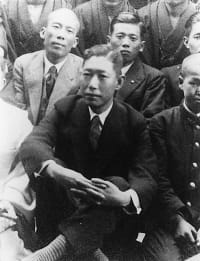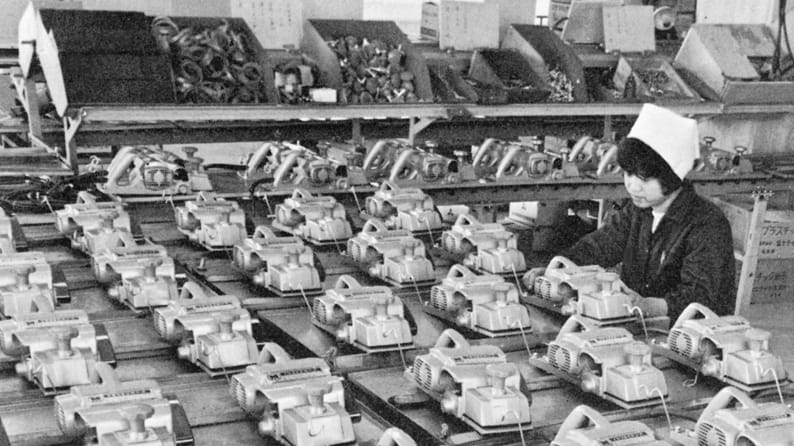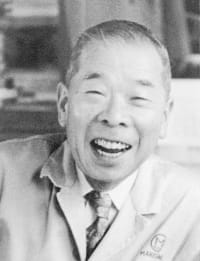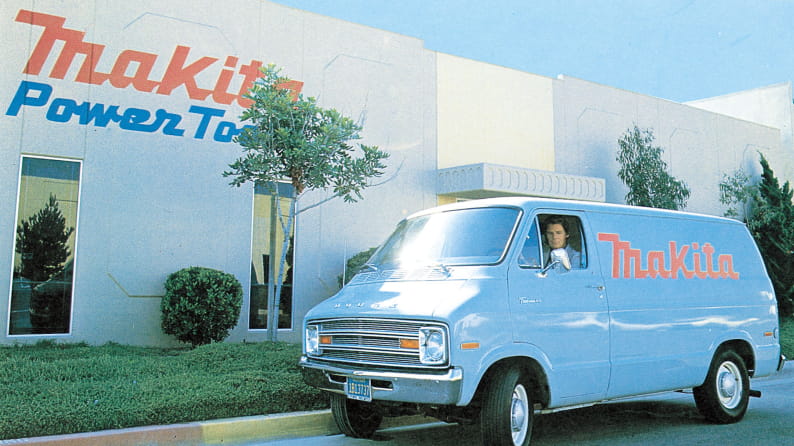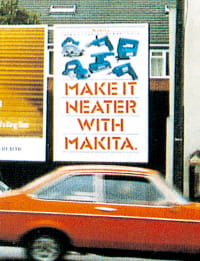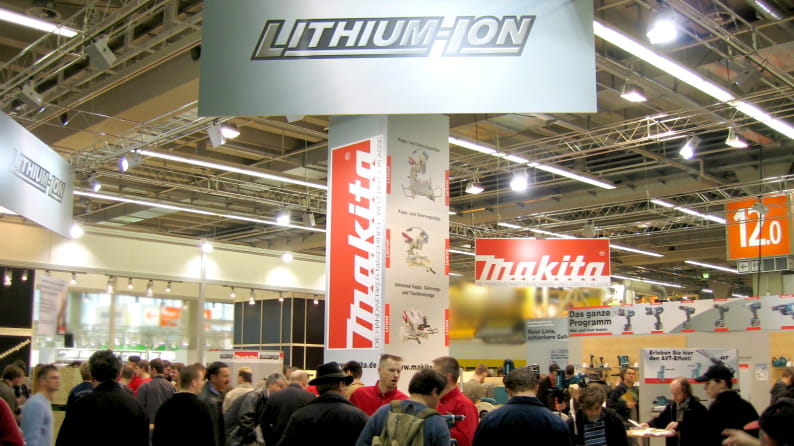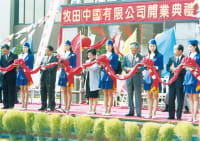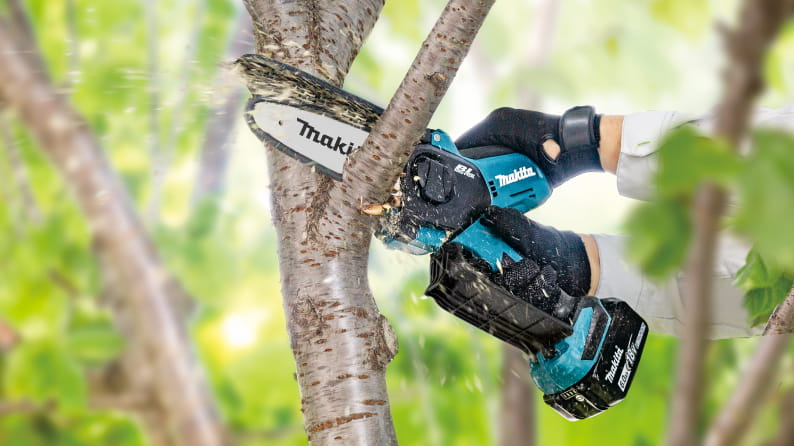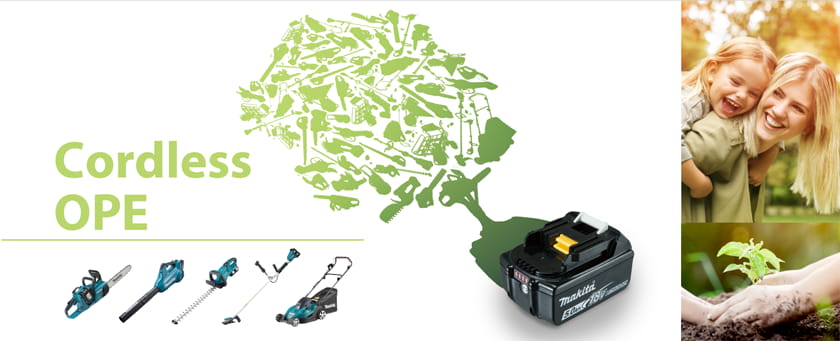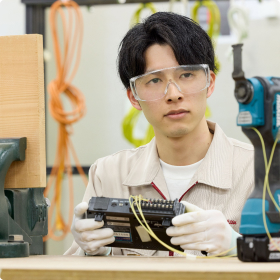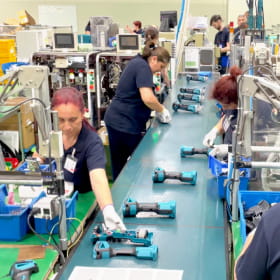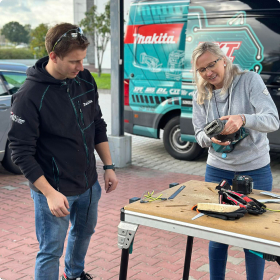Makita at a Glance
Since the foundation in 1915, Makita has revolutionized power tools and kept pushing the limit.
Here you will find brief summary of Makita history and our strength.

HISTORYHistory of the Makita Group
In 1915, Makita was founded as an electric motor sales and repair company. In 1958, Makita became the first company in Japan to manufacture and sell electric planers. For over a half century thereafter, Makita worked to build a steady position as a manufacturer of portable electric power tools and, today, continues its quest to provide products and services that are beneficial to all types of customers engaged in housing construction. Makita’s history also parallels that of the evolution of power tools and, over the course of its history, Makita has worked to dovetail its products to its customers’ developing needs.
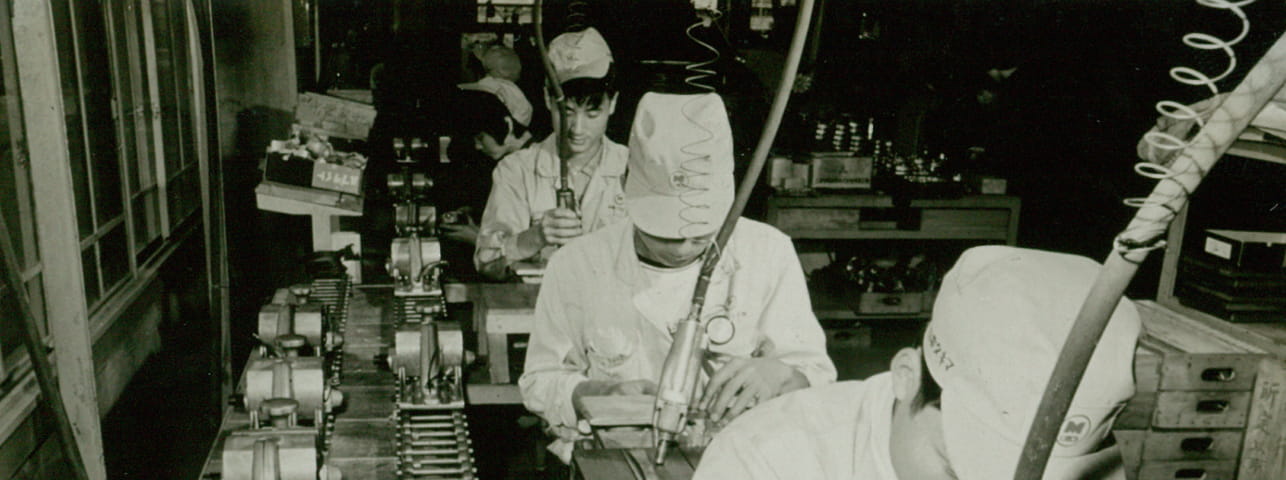
Foundation of the Company
Makita Electric Works was founded in the dawn of the age of electricity.
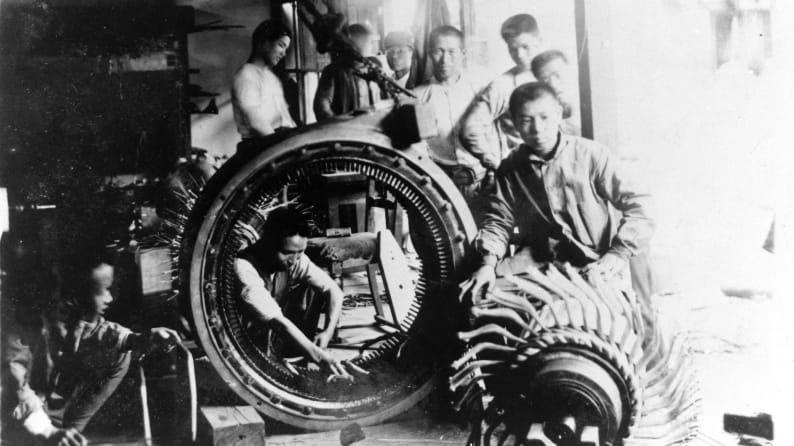
| 1915 |
Mosaburo Makita founded Makita Electric Works (proprietorship) in Nagoya |
|---|---|
| 1935 |
First exported electric generators and motors to the Soviet Union. The Soviet Union required rigorous inspections for import, but the Company’s products passed them with excellent assessment results. It became Makita’s memorable first export case.  On-site inspection by inspector from the Soviet Union |
| 1938 |
Incorporated the proprietorship’s and established Makita Electric Works, Inc. At the time, Makita had capital of 180,000 yen, a total number of issued shares of 3,600, and 94 employees. |
| 1945 |
In an attempt to avoid air raids, moved the plant to the current head office in the city of Anjo in Aichi Prefecture. |
ZERO EMISSIONConversion from engine-powered to battery-powered
Exhaust gas-free*, petrol-free*, easy-starting, and low-noise operation
In 2005, Makita started marketing impact drivers equipped with lithium-ion batteries ahead of others in the industry. Makita has successively launched lithium-ion battery powered products since then, and it now has the No.1 product range in the category in the industry. In recent years, the range of products that adopt lithium-ion batteries has been increasing to dust extraction and gardening tools, in addition to power tools. Amid growing awareness of the need to protect the natural environment and improve the working environment, users are required to place emphasis on measures to reduce exhaust gas and control noise and vibrations. In order to meet such needs, Makita is aiming to coexist in harmony with the environment by pursuing battery-powered tools that have a power output equivalent to engine-powered tools, are zero-gas-emission*, not fuel-powered*, and have effortless starting, and achieve a dramatic noise reduction.
- During the use of the tool
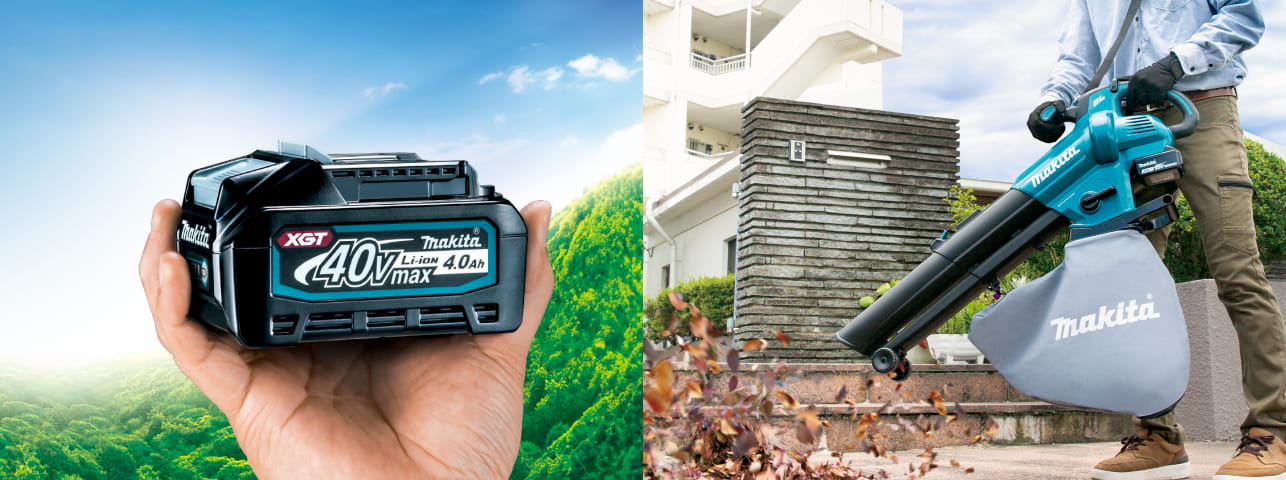
NETWORKProduct manufacturing
Through our integrated network of development, manufacturing, and sales services around Japan and the world, Makita will continue to deliver high-quality, industry-leading services along with products that aptly meet global user needs.
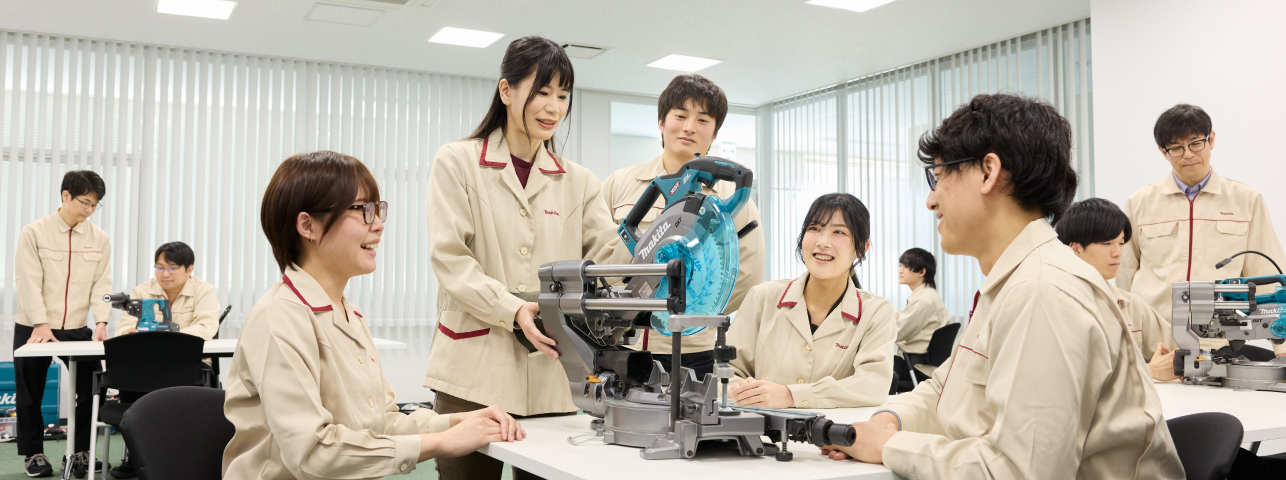
-
Product Development / Quality Assurance
Industry-Leading Product Development Capabilities
We were quick to adopt lithium-ion batteries for professional power tools, and we have the industry-leading capabilities for product development to develop them into a series of products.
We design products with consideration for safety, design sophistication, the user's work environment, and the global environment, and by utilizing advanced technologies, such as CAE analysis, we have further strengthened our unique expertise that we have cultivated over the years to build Makita into a trusted brand.A System that Guarantees Quality, from Design to Mass Production
We have built a system that guarantees quality in all processes from design to mass production. During development, we emphasize designing-in and adopt design that prevents the occurrence of defects. Then, we perform evaluation from perspectives such as laws and regulations, functionality, and durability, and confirm that the product will satisfy our customers.

-
Production
Uniform Quality in Craftsmanship
Because we can efficiently manufacture products of stable quality, we develop in-house robots and share expertise on mass production between factories. While working to save manpower at manufacturing sites, our craftsmanship has evolved to produce products of uniform quality, no matter where they are made or by whom.
A Global Manufacturing System
We have plants in eight countries around the world (Japan, China, Romania, Thailand, the United Kingdom, Brazil, the United States, and Germany); about 90% of products manufactured by Makita are made abroad. Going forward, we will continue to strive to further enhance our manufacturing capabilities so we can quickly produce and supply products in response to local needs.

-
Sales and services
Industry-Leading Network of Bases
Makita's strength lies in its industry-leading worldwide network of bases, which ensures a prompt and stable supply of products. With directly managed sales bases in approximately 50 countries outside Japan in addition to 129 sales offices in Japan, we are actively engaged in various sales promotion activities through exhibitions, demonstration events, and user visits.
Customer-Oriented Service Activities
The inability to use tools due to malfunctions leads to delays in the customer's work. When a product malfunctions, Makita promptly repairs it at one of its bases and delivers it to the customer. By not only selling products but also providing meticulous after-sales service, we help our customers improve efficiency and productivity at their work sites, leading to the building of relationships of trust.


